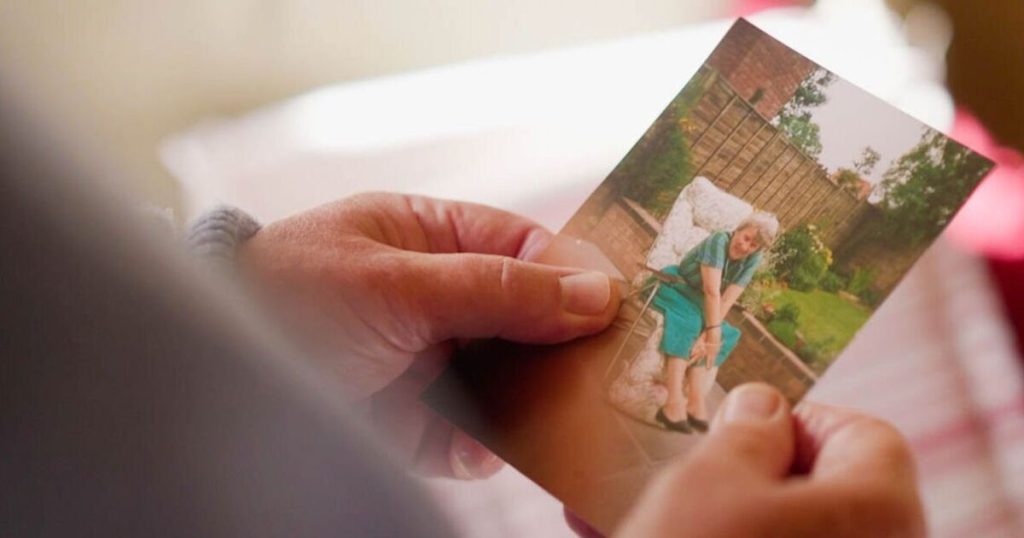
A family has recovered £53,000 in care home costs after appealing a decision for support from the NHS.
Shirley O’Sullivan, 97, was suffering from Alzheimer’s disease before she passed away in 2017. With her care home fees reaching around £550 a week, the family applied for the NHS’s Continuing Healthcare (CHC) to help with costs but were initially denied the support.
NHS CHC is a fully-funded package of care that some people are entitled to receive as a result of disability, accident or illness.
It is available in England and Wales to individuals who have complex, intense or unpredictable needs and can be provided in a nursing home, in a hospital or a person’s own home. Those who are accepted receive fully-funded care from the NHS.
However, due to its strict guidelines, the scheme is notoriously difficult to gain approval.
Mrs O’Sullivan’s son, Patrick, 75, from County Durham, told The Express: “The whole process took many years before the NHS settled the claim. In fact, it was settled in two parts as initially, the claims were not accepted.”
He credited the eventual success to “patience” and the “tenacity and determination” of his solicitors, Hugh James, in reaching a settlement.
Mr O’Sullivan said: “My mother suffered with Alzheimer’s disease. Her condition during the last two years of her life was very severe. She was doubly incontinent and needed considerable care from the care home.
“She was also very depressed, had no interest in mixing with other residents and was unable to recognise me when I visited.”
Lisa Morgan’s team at Hugh James managed to recover around £53,000 for the family. Mr O’Sullivan said: “We were absolutely delighted as my mother and indeed my late father, who was a GP, would have been very pleased that at least they were able to bequeath at least some part of their modest wealth.”
Ms Morgan, a partner and head of the care home fee recovery team at Hugh James, said: “Most people are unaware of the existence of NHS Continuing Healthcare (CHC) – a vital source of funding for those in care. Eligibility is entirely unrelated to a person’s or their family’s wealth.
“If a person requires long-term care, the first consideration must be their health needs rather than their ability to pay. For individuals whose primary need for care is because of their health, as opposed to ‘social’ reasons, it is the NHS’ responsibility to fully fund their care.”
However, she noted: “Unfortunately, many individuals who should be deemed eligible are turned down for this funding having been incorrectly assessed by the NHS. A lack of awareness of the funding scheme, coupled with guidelines that are often forgotten or applied too restrictively, means more people could be eligible for CHC.”
The process for recovering care home fees
Ms Morgan explained that the first step in recovering care home fees is to ensure the individual has been properly assessed for CHC through a multi-disciplinary team assessment. Anyone requiring long-term care due to illness should be assessed by their Integrated Care Board (ICB) in England or the Health Board in Wales.
If an individual is found not to be eligible for NHS funding, the responsibility falls to the local authority. However, unlike the NHS, local authorities assess an individual’s ability to pay for care. In England, if a person has capital exceeding £23,250 (£50,000 in Wales), they must meet the full cost of care.
If a person is dissatisfied with the outcome of a CHC assessment, they have the right to challenge the decision through a review procedure.
In terms of recovering fees, Ms Morgan further explained that ICBs in England will review unassessed periods of care dating back to April 2012. In Wales, the process is more restrictive, with reviews limited to just one year back from the date of request. The authority will assess whether someone’s care needs at the time should have qualified them for CHC, even if the individual has since passed away.
Ms Morgan added: “There is a thin line between healthcare and social care. However, the impact on the individual is the difference between free care and means-tested care. It is not because an individual is wealthy that they should be dismissed by a service with a legal duty to fund their or their loved one’s care home fees.”
An NHS spokesperson said: “Eligibility for NHS continuing healthcare funding is determined on an individual basis by health and social care professionals in line with guidance and regulations set by the Department of Health and Social Care, to ensure there is a consistent approach across the country.”







